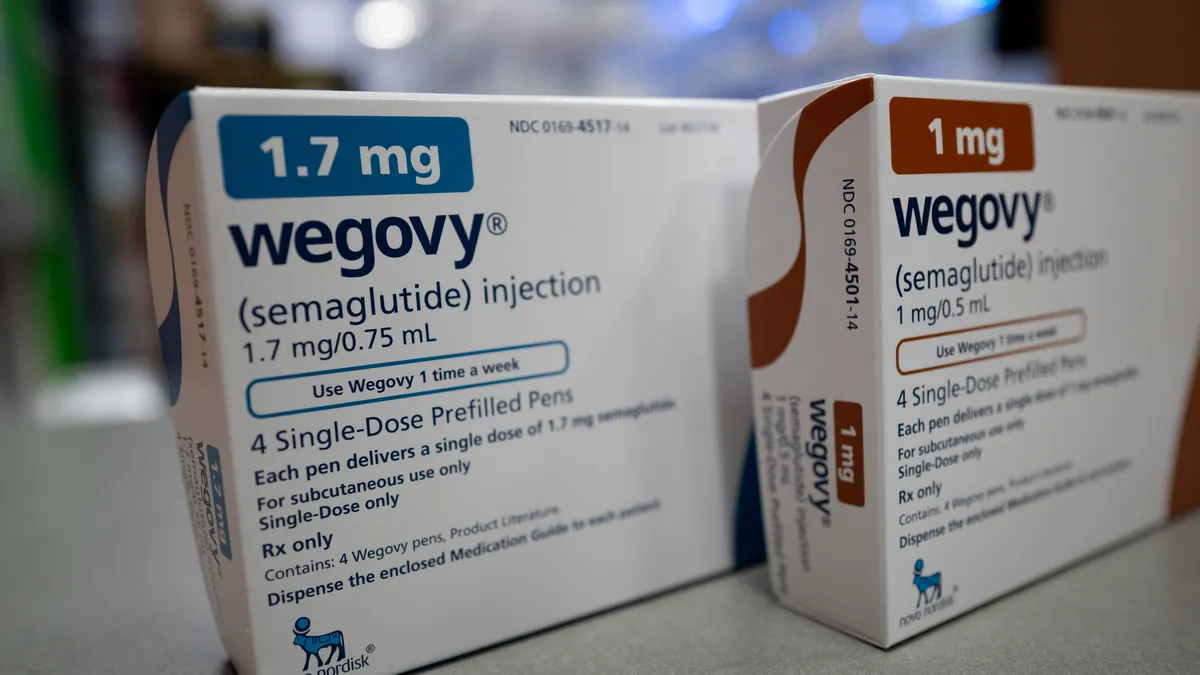The increasing use of GLP-1s for weight loss, instead of solely type 2 diabetes management, is putting employers in a tricky position, according to research released Oct. 22 by The Peterson Center on Healthcare and KFF. With the often pricey drugs, such as Ozempic and Wegovy, growing in popularity, companies have to decide whether to provide coverage for weight loss.
However, there soon might not be a choice, one insurer reportedly told an occupational health manager at a large manufacturer.
“Cigna told us that within the next 9 to 12 months, there’s really not going to be a choice, that all insurance companies are probably going to be covering GLP-1s for weight loss,” they said.
The report’s authors used findings from the 2025 KFF Employer Health Benefits Survey and insights from interviews and group discussions with more than 100 U.S. employers held in summer and fall of 2025.
Just shy of 1 in 5 large companies, those with at least 200 workers, said they covered GLP-1s for weight loss this year, and 43% of the biggest employers, those with at least 5,000 workers, said they offered the coverage in their largest plan, an increase from 28% that did the year before.
Among the biggest employers that provide this coverage, 6 in 10 said costs have exceeded expectations, and two-thirds (66%) said they had a “significant” effect on their health plan’s prescription drug spending.
The medications work by reducing hunger signals, slowing digestion and helping people feel full for a longer period of time, but could need to be taken continuously to lose weight, the authors said.
At one large manufacturer, spending on GLP-1s for weight loss was increasing 50% year over year, a director of total rewards said. As a result, the company decided to up co-pays, which it hadn’t “increased in forever.”
Yet, despite cost, many employers said they saw the coverage as a potential way to improve health outcomes for workers and as an important part of employee satisfaction.
At one large manufacturer with 165 employees, about 40 are on GLP-1s for weight loss, a human resource representative said.
“A lot of them have issues with high blood pressure. It’s not just because you know, they want to be skinny, but they’re doing it to help with their health,” the HR rep said.
A little more than a third of companies require workers to participate in lifestyle or clinical support programs — such as meeting with a dietitian, case manager or a therapist — to receive coverage for GLP-1s for weight loss, the report found.
One HR consultant said workers have to check in quarterly, show they’re making lifestyle changes through an app and meet with case managers.















